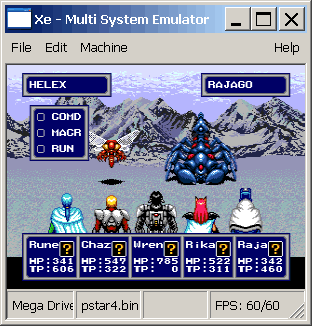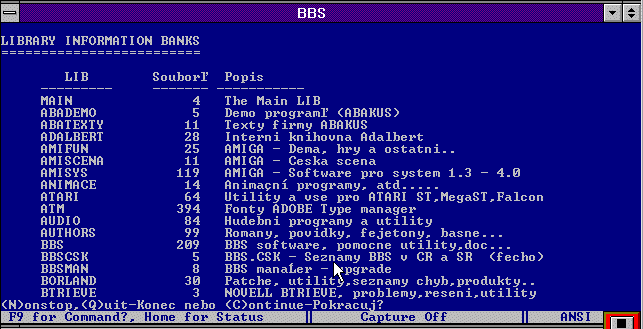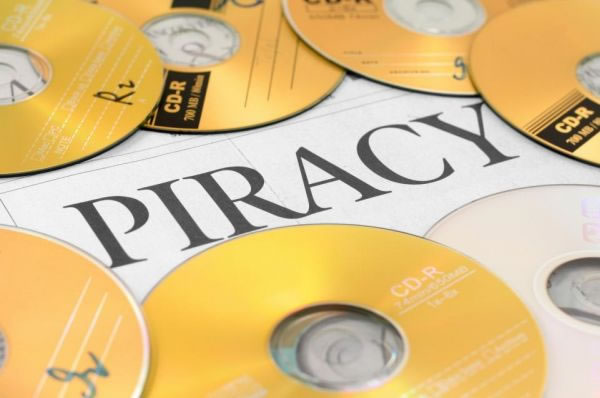Emulation is perhaps the largest gray area in gaming. Every time the issue is brought up, message boards (including our own) flare up as gamers take sides in the debate. Some are in favor, for a myriad of reasons, and others are against all forms of emulation, citing piracy and other legal points. Sega-16, believes that emulation, when done correctly, is an invaluable research tool and essential to the preservation of the history of gaming, something the industry is only now beginning to understand.
 Whenever the topic comes up, however, it usually revolves around the legal and ethical standpoints involving those who use emulation. Very rarely is the subject of ROM distribution talked about, as gamers can google up a ton of sites dedicated to the proliferation of these still-copyrighted intellectual properties. Strangely enough, few game companies actively seek legal action against websites that freely distribute their games. This most likely has to do with the almost infinite number of ROM sites out there, which makes such action look almost fruitless. (Try wiping out an ant hill by killing the ants one by one, and you’ll see what I mean.)
Whenever the topic comes up, however, it usually revolves around the legal and ethical standpoints involving those who use emulation. Very rarely is the subject of ROM distribution talked about, as gamers can google up a ton of sites dedicated to the proliferation of these still-copyrighted intellectual properties. Strangely enough, few game companies actively seek legal action against websites that freely distribute their games. This most likely has to do with the almost infinite number of ROM sites out there, which makes such action look almost fruitless. (Try wiping out an ant hill by killing the ants one by one, and you’ll see what I mean.)
Over a decade ago, long before such websites were commonplace, one company did take action against illegal ROM distribution. That company was Sega, and the ROMS it sought to keep out of illegal hands were Genesis games. As a company that was holding on to a slim lead in market share, it made every effort to ensure that it got the most out of its games. In the process, it set a legal precedent that has been referenced ever since, most recently with Sony and its own Playstation games.
Quiet Distribution
Long before the Internet and its plethora of search engines, chat rooms, and instant messaging, people used bulletin board systems (BBS) to connect and talk to one another via their computers. Throughout the 1980s and early 1990s, users would install the software and register at a particular board. Various levels of membership were usually offered, varying according to privileges desired (most charged for increased access). Some, called elite boards, had features that could be accessed by paying extra, like large user bases, pornography, or door games. A few even gave their users the ability to download illegal software. These often had multiple modems and phone lines, which permitted several users to upload and download material at once. Due to the questionable content, they used some form of user verification. On the largest boards, new users were often accepted by invitation only, in order to prove that they weren’t police or FBI (called lamers).
One such board called MAPHIA (clever play on words, don’t you think?) was located in San Francisco and was run by Chad Sherman, aka “Brujo Digital.” Officially known as the MAPHIA Trading Company and run out of Sherman’s own house, this particular board was open to the public and had around four hundred users. It was linked to another board called PSYCHOSIS (run by a friend of Sherman), and the two operated in a network called PARSEC for business purposes. Sherman considered himself an entrepreneur and summed up his business plan to potential users thusly:
As you know we have PARSEC TRADING CO. as our business that sells everything from Copiers to Modems to Hard Drives to Calling Cards (off the record, hehe), and even Pentium Chips now. So, the next step is a MEDIA BLITZ! Time to post advertisements ASCIIS on every bbs you log onto! I’ll have some Advertisements ready … Also, we are selling Super Wild Cards, Pro Fighter Q’s and Super Magic Drives for AKIRA and that part of PARSEC will be dedicated for him but me and CAFFEINE will handle all the business side of that and paying him the money and dealing with the customers, etc.
The other partner mentioned, CAFFEINE, was a friend of Sherman’s named Ilene Silberg. The copiers MAPHIA sold, such as the Super Magic Drive and Multi Game Hunter, were sold for around $350 and could be used to make copies of video games. MAPHIA copied several Genesis games, including Jurassic Park and Sonic Spinball, and placed them on their BBS for download. Since users paid a nominal fee for access, they were allowed to download the ROMs for a limited amount of time (usually 24-48 hours), sort of a “digital rental.” The problem was, MAPHIA had no disclaimer on its site that specifically stated that the games had to be deleted. Users who downloaded the ROMs were thus free to keep them as long as they wanted, with MAPHIA having no means to verify that those users deleted them from their computers. Though Sherman may not have been intentionally providing the games for people to keep indefinitely, he sure was making it easy. It was only a matter of time before someone noticed.
Someone eventually did, and they called Sega about it.
Sega Takes Action
In 1993, Sega received an anonymous tip about MAPHIA’s actions. One of its employees accessed MAPHIA’s BBS through user information supplied by an informant. Over the next few weeks, the employee collected information about MAPHIA’s actions and the games it was making available for download. When it had enough evidence, it took legal action and filed charges. On December 9, 1993, Judge Fern M. Smith issued an ex parte Temporary Restraining Order and Seizure Order (an order issued from or on one side only of a dispute, without notice to or the presence of the other party), and federal agents raided Sherman’s home two days later and seized his computer, the memory of which they then copied. In all, twelve games were found on his machine, including several betas.
 Sherman’s lawyers tried to counter by alleging that Sega violated both the Fourth Amendment and the Electronic Communications Privacy Act of 1986, which states that it is illegal to “intentionally access without authorization a facility through which an electronic communication service is provided.” This strategy didn’t get far in court, and Sega was quick to refute Sherman’s claim with some hard evidence, Since the Sega employee had accessed the MAPHIA BBS through an accepted user name, and since the informant who had provided that information had done so willingly, the judge threw out Sherman’s claims.
Sherman’s lawyers tried to counter by alleging that Sega violated both the Fourth Amendment and the Electronic Communications Privacy Act of 1986, which states that it is illegal to “intentionally access without authorization a facility through which an electronic communication service is provided.” This strategy didn’t get far in court, and Sega was quick to refute Sherman’s claim with some hard evidence, Since the Sega employee had accessed the MAPHIA BBS through an accepted user name, and since the informant who had provided that information had done so willingly, the judge threw out Sherman’s claims.
Things didn’t look particularly well for Sherman and company. The amount of evidence against them was pretty large. Truthfully, it was a pretty clear case of copyright infringement. The fact that he didn’t take many steps to hide his activities only made Sega’s case that much stronger. The games he was hosting were in a file area named !MAPHIA! SEGA CONSOLES.”
Furthermore, Sherman actually promoted his wares to other BBS users, through messages like this one:
Thank you for purchasing a Console Back Up Unit [copier] from PARSEC TRADING. As a free bonus for ordering from Dark Age, you receive a COMPLEMENTARY Free Download Ratio on our Customer Support BBS. This is if you cannot get a hold of Super Nintendo or Sega Genesis games. You can download up to 10 megabytes, which is equal to approximately 20 normal-sized Super Nintendo or Genesis games. After your 10 megabytes is used, you can purchase full months of credit for only $35/month. You can also prepay and order either 1 year of free downloads for $200/year, or a lifetime of free downloads for only $500.
This was a damning statement, and it fueled Sega’s case that Sherman had not only knowingly provided its games to his users for download but had also encouraged them to do so. On top of that, the game copiers he sold were used to promote piracy and permitted MAPHIA users to copy and upload any games they may have of their own. In essence, Sherman was providing a central hub, a nexus where people could go to find free ROMs, not unlike the many hundreds of ROM sites currently on the Internet today. Moreover, a screen printout of user statistics from his BBS system proved that he tracked, or at least had the ability to track what his users were uploading and downloading. There was no way he could play innocent here.
Facing multiple charges of copyright infringement and illegal distribution, Chad Sherman was facing some serious trouble. It looked like Sega was going to make an example of him, and it spared no expense in its pursuit of retribution.
You’ve Been Served
Chad Sherman, Ilene Silberg, and several other defendants were brought before a California district court in March of 1994, facing multiple charges. Sega contended the following against them:
- Copyright Infringement. Sega established an obvious case of ownership of the games in question, producing certificates of registration for each one. This action had its precedent in a 1984 case involving Apple Computer Inc.
- Federal Trademark Infringement. Sega contended that its own name and logo were used illegally by MAPHIA.
- False Destination of Origin. Sega sought to prove that the public was likely to be confused or deceived by the use of its trademarks by MAPHIA.
- Irreparable Harm. Each copy of each game made deprived Sega of revenue, and the availability of unfinished, confidential pre-release betas not yet completed could damage its business and reputation as a company.
A preliminary injunction was issued by the court against Sherman, preventing him from further using Sega’s properties on his BBS, and a $50,000 bond had to be posted to ensure compliance. Undeterred, Sherman and his lawyers attempted to argue that MAPHIA’s actions fell under the terms of free use. Since he never intended for his users to keep their copies of the “digital rentals” available for download, and since he wasn’t particularly out to make a profit from such actions, Sherman felt he had done nothing wrong. His free use argument fell apart however, due to one tiny oversight: he never owned actual copies of the games he made available for download. Free use requires ownership and no intention of profit, neither of which actually occurred. Sherman himself admitted that he owned none of the games available on his BBS (where he procured the ROMs is unknown), and he obviously could not claim ownership of games still in the beta stage. Additionally, since he made no effort to inform his users that they must delete what they downloaded after a specific period of time, he had no basis for this defense.
 Where Sega fired the bulk of its legal fire was at Sherman’s contention that he had no part in his user’s copyright infringement. He wasn’t the one downloading and keeping the games, so why should he be blamed? This avenue proved to be a dead end for him as well, and while the Copyright Act doesn’t expressly impose liability against anyone other than direct infringers (in this case, the people downloading the games), courts all over the U.S. have recognized the part played by those who make the product in question available. Sega believed that Sherman had committed contributory infringement by knowingly providing its games on his BBS for people to download and by not explicitly stating that those games were copyrighted materials that could not be legally kept on their PCs indefinitely.
Where Sega fired the bulk of its legal fire was at Sherman’s contention that he had no part in his user’s copyright infringement. He wasn’t the one downloading and keeping the games, so why should he be blamed? This avenue proved to be a dead end for him as well, and while the Copyright Act doesn’t expressly impose liability against anyone other than direct infringers (in this case, the people downloading the games), courts all over the U.S. have recognized the part played by those who make the product in question available. Sega believed that Sherman had committed contributory infringement by knowingly providing its games on his BBS for people to download and by not explicitly stating that those games were copyrighted materials that could not be legally kept on their PCs indefinitely.
The court ruled in Sega’s favor, and Sherman’s group was forced to pay statutory damages amounting to $10,000, as well as attorneys’ fees regarding Sega’s copyright infringement claim. Whether or not the defendants actually paid this amount or even anything at all is unknown. The court was quite aware of the precedent it was setting and the importance its decision would have in similar cases in the future. It was also very clear in its point that copyrights for digital properties were as valid as any other, citing Sherman’s defense as “weak or irrelevant.” When Sega took another BBS owner, Sharon Sabella (otherwise known as “Dirty Scum”) of the SEWER LINE BBS, the MAPHIA case was still fresh in its memory. The California courts were quickly becoming well versed in such cases, and once again ruled in Sega’s favor.
Implications for the Future
Sega vs. Maphia set a legal precedent for the illegal distribution of ROMs that would be used for years to come by many other software publishers, including Sony in 2000. It is thanks to this case that the fuzzy area known as emulation has become a bit clearer in terms of what is and what isn’t allowed. Despite their differences, both proponents and opponents of video game emulation must agree that this case went a great distance in attempting to define the legalities of digital properties. As time progressed and video games changed from cartridges to CDs, and then to DVDs, the law established by this ruling has only become more important. Today’s software companies face piracy issues unheard of a mere decade ago, and it is vital that a clear line be drawn regarding this issue, especially with the confusion caused by the Digital Millennium Copyright Act.
The significance of this case wasn’t confined to merely the video game industry either. The precedent set here for contributory infringement has been used for movies and music, most notably against the peer-to-peer service Napster. Your personal feelings aside, you have to recognize the magnitude involved. Think of it this way: not only was the Genesis setting the gaming world on fire, it was making waves in legal circles as well. Not bad for our little black box.
Sources
- Information Infrastructure Task Force. Public Hearing onthe Intellectual Property Implications of the National Information Infrastructure. Electronic Frontier Foundation. Sept. 16, 1994.
- Maragos, Nick. Afterlife: The World of Console Game Emulation. 1up. June 23, 2005.
- Min, Dr. Liu. Copyright in the Digital Age. University of Texas, Austin. 2000. (PDF file)
- Sega vs. MAPHIA.No. C 93-4262 CW.
857 F.Supp. 679. Loundy.com. March 28, 1994. - Sega Enterprises Ltd. vs. MAPHIA.948 F.Supp. 923, 41 USPQ2d 1705. Digital Law Online. Dec. 18, 1996.
- Sega Enterprises Ltd. vs. Sharon Judith Sabella.No. C 93-04260 CW. Meiji University. Dec. 18, 1995.
- Winik, Raphael.Searches and Seizures of Computers & Computer Data. Harvard Journal of Law & Technology. Vol.8. Fall 1994.

Pingback: Genesistórias – Super Magic Drive – DRIVE YOUR MEGA